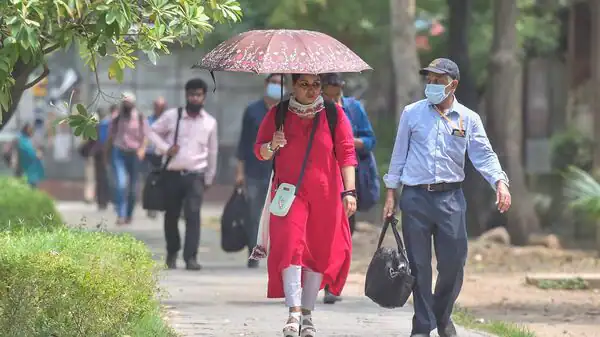India is a land of diverse geography, with a variety of climates ranging from the snow-capped Himalayas in the north to the tropical beaches in the south. However, the country is also known for its scorching heat, particularly during the summer months. A recent study has revealed that India’s heat is not just uncomfortable, but it’s also causing harm to the country’s progress.
The study was conducted by the Indian Institute of Technology, Gandhinagar, and published in the journal Environmental Research Letters. The research team analyzed temperature data from 1960 to 2009 and found that India’s mean temperature has risen by 0.63°C per century, which is higher than the global average of 0.15-0.20°C per century. The study also revealed that India’s heat is not only increasing in intensity but also in duration, leading to a rise in heatwaves across the country.
India has experienced several severe heatwaves in recent years, resulting in thousands of deaths and impacting agriculture, energy, and other sectors. The country’s National Disaster Management Authority has listed heatwaves as a natural disaster, and the Indian Meteorological Department has issued heatwave warnings for several states.
The study found that India’s heat is not just a natural phenomenon, but it’s also a result of human activities such as urbanization, industrialization, and transportation. These activities have led to the release of greenhouse gases, which have contributed to the warming of the planet and the rise in temperature in India.
The rising heat in India has far-reaching consequences for the country’s progress. For example, heatwaves can impact agricultural productivity by damaging crops and reducing yields. This can lead to food shortages, which can affect the country’s economy and lead to social unrest. Heatwaves can also impact the energy sector by increasing demand for electricity, which can lead to blackouts and disrupt the economy.
The study also found that the impacts of heatwaves are not evenly distributed across the country. Some regions, particularly those in the north and northwest, are more vulnerable to the effects of heatwaves due to their geography, socio-economic status, and access to resources. These regions are also more susceptible to the impacts of air pollution, which can exacerbate the effects of heatwaves.
To address the impacts of India’s heat, the study recommends a multi-pronged approach that includes reducing greenhouse gas emissions, developing heat-resilient infrastructure, increasing access to cooling systems, improving health systems to deal with heat-related illnesses, and raising awareness about the impacts of heatwaves. The study also emphasizes the need for regional-specific solutions that take into account the unique challenges faced by each region.
In conclusion, the study highlights the need for urgent action to address the impacts of India’s heat. The rising temperature is not just uncomfortable, but it’s also harming the country’s progress. By taking a comprehensive approach to address the impacts of heatwaves, India can build a more resilient and sustainable future.

